Today Current Affairs: 22nd September 2022 for UPSC IAS exams, State PSC exams, SSC CGL, State SSC, RRB, Railways, Banking Exam & IBPS, etc
Table of Contents
Lumpy Skin Disease:
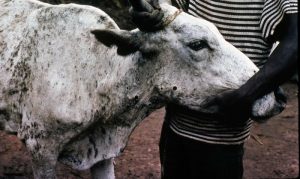
Lumpy Skin Disease is a viral illness that causes prolonged morbidity in cattle and buffaloes.
- Caused by the poxvirus Lumpy skin disease virus (LSDV).
- LSD affects the lymph nodes of the infected animal, causing the nodes to enlarge and appear like lumps on the skin, which is where it derives its name from.
- The disease was first observed in Zambia in 1929, subsequently spreading to most African countries extensively
- It is not a zoonotic virus, meaning the disease cannot spread to humans, and therefore it is safe to consume milk from the affected animal.
- It is a contagious vector-borne disease spread by vectors like mosquitoes, some biting flies, and ticks and usually affects host animals like cows and water buffaloes.
- The spread of the disease can lead to “substantial” and “severe” economic losses according to FAO and the World Organisation for Animal Health (WOAH).
- The disease leads to reduced milk production as the animal becomes weak and also loses appetite due to mouth ulceration.
- There is no treatment for the virus, so prevention by vaccination is the most effective means of control.
- Goat Pox Vaccine is “very effective” against LSD.
- Two institutes of the Indian Council of Agricultural Research (ICAR) have developed an indigenous vaccine for LSD
Kurmis:
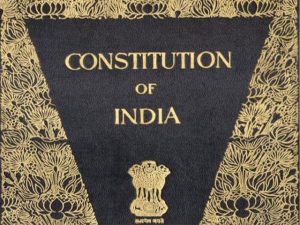
Kurmis blocked railway tracks in various parts of eastern India demanding Scheduled Tribe (ST) status and inclusion of Kurmali language in the eighth schedule of the Constitution.
- Kurmi is traditionally a non-elite tiller caste in the lower Gangetic plain of India.
- They are present in southern regions of Awadh, eastern Uttar Pradesh and parts of Bihar.
- Eighth Schedule: It lists the official languages of the Republic of India.
- Part XVII of the Indian constitution deals with the official languages in Articles 343 to 351.
- The Eighth Schedule to the Constitution consists of the following 22 languages.
- The Sindhi language was added by the 21st Amendment Act of 1967.
- Konkani, Manipuri, and Nepali were included by the 71st Amendment Act of 1992.
- Bodo, Dogri, Maithili, and Santhali were added by the 92nd Amendment Act of 2003.
Long Range Radio (LoRa):

Institute for Development and Research in Banking Technology (IDRBT, an Institute under the RBI) has developed a new low-cost financial network to take banking to remote areas.
- LoRa technology is a wireless modulation technique in the physical layer, allowing long-range communication using a chirp spread spectrum.
- LoRa technology uses dedicated radios, which are not usually present in end-user devices, limiting interferences from other devices.
- Banks can use this as their own dedicated private network instead of using a third-party network which is presently based either on a satellite link or wired.
- IDRBT is the first in the world to develop this network based on LoRa (Long Range Radio) technology
- It will make it possible for people in remote hilly and forest areas without satellite signals to access banking services.
- Lower threat of cyber hacking
- The cost of the LoRa financial network is estimated to be 20 per cent cheaper than alternative network technologies with an additional advantage of almost no maintenance and portability of devices.
Southwest Monsoon:
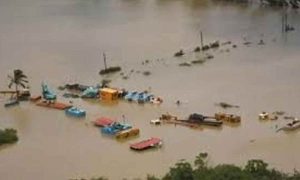
The southwest monsoon rainfall, 7% more than normal, has started to withdraw
- The India Meteorological Department (IMD) said that the system had begun retreating from parts of southwest Rajasthan and Kutch.
- The “normal” or average date of withdrawal from southwest Rajasthan was September 17.
- The withdrawal of the monsoon was based on meteorological conditions such as an anti-cyclonic circulation (dry air that is the opposite of a cyclone), the absence of rain in the past five days and the water vapour imagery indicating dry weather conditions over the region.
- The monsoon withdrawal is a long-drawn process and extends into mid-October, though the IMD considers September 30 to be the final day of the season over India.
- The rain after that is categorised as “post-monsoon” rainfall.
- The September rainfall so far has been 11% more than usual, following a trend in recent years that is seeing excess rainfall in a month that marks the waning of the monsoon.
- Most of the rain, however, has been in the southern peninsula and central India, which have seen 29% and 33% more rain than what is usual for these regions in September.
Asia-Pacific Institute Of Broadcasting Development (AIBD):
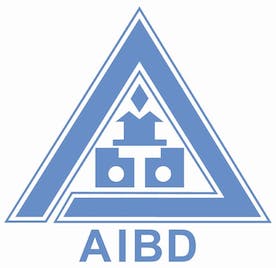
India’s Presidency of the prestigious Asia-pacific Institute of Broadcasting Development (AIBD) has been extended for one more year.
- This was unanimously decided by the AIBD member countries at the two-day General Conference of the Institute held in New Delhi.
- The Asia-Pacific Institute for Broadcasting Development (AIBD) was established in 1977 under the aegis of United Nations Educational, Scientific and Cultural Organization (UNESCO).
- It is a unique regional inter-governmental organisation servicing countries of the United Nations Economic and Social Commission for Asia and the Pacific (UN-ESCAP) in the field of electronic media development.
- Its secretariat is situated in Kuala Lumpur and is hosted by the Government of Malaysia.
- The AIBD is mandated to achieve a vibrant and cohesive electronic media environment in the Asia-Pacific region through policy and resource development.
- The International Telecommunication Union (ITU), the United Nations Development Programme (UNDP), and the United Nations Educational, Scientific Cultural Organisation (UNESCO) and The Asia-Pacific Broadcasting Union (ABU) are founding organizations of the Institute and they are non-voting members of the General Conference
- Broadcasters from 26 countries in the Asia Pacific region including India are full members of the organisation.
The 47th AIBD Annual Gathering:
- The 47th AIBD Annual Gathering/20th AIBD General Conference and Associated Meetings was held in New Delhi.
- It witnessed a range of discussions, presentations and idea exchange sessions especially focusing on the topic of “Building a Stronger Future of Broadcasting in post pandemic era”.
- A five-year plan for co-operative activities and exchange programmes was also finalised.
- All the participating countries and member broadcasters pledged to work together for a sustainable broadcasting environment, latest technology know-how, finest content
Directorate Of Enforcement:

In the eight years from 2014, the Directorate of Enforcement (ED) has investigated 121 prominent politicians and has arrested, questioned, raided, or filed FIRs against 115 major Opposition leaders.
- The Directorate of Enforcement (ED) is a law enforcement agency and economic intelligence agency responsible for enforcing economic laws and fighting economic crime in India. It is part of the Department of Revenue, Ministry of Finance.
- The ED’s aggression has been largely on account of its current Director Sanjay Kumar Mishra (since 2018) and his predecessor Karnal Singh (2015-18) leveraging the massive powers bestowed on the agency by the Prevention of Money Laundering Act (PMLA), 2002.
- Unlike laws governing other agencies, particularly the CBI, the PMLA allows the ED to take cognizance of any offence under its wide-ranging schedule across the country, with or without the consent of state governments.
- While the National Investigation Agency (NIA) too has powers to take suo motu cognizance of offences across the country, the schedule of the NIA Act — that is, the types of offences that it can investigate — is limited to about a dozen offences.
- The schedule of the PMLA on the other hand, has increased from just six offences in 2002 — when the law was enacted — to 30 groups of offences encompassing over 147 provisions now.
- The ED’s sweeping ambit extends from serious crimes such as terrorism to the hunting of wild animals, and from the infringement of copyright to false trademarks.
Electoral Reforms:
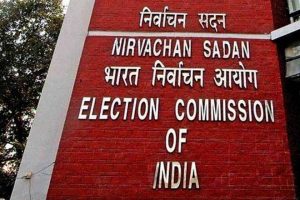
The Election Commission of India (ECI) has sought limits on cash donations to political parties.
- In a letter to Law Minister Kiren Rijiju, Chief Election Commissioner Rajiv Kumar has suggested some amendments in the Representation of the People Act to increase transparency and accountability.
- The poll body has proposed to decrease the limit of anonymous political donations from 20 thousand rupees to two thousand rupees and sought to restrict cash donations at 20 percent or at maximum of 20 crore rupees out of the total funds received by a party.
- The Commission has also suggested that every candidate should open a separate bank account for election purposes, route all expenses and receipts through this account and furnish these details in their account of election expenditure.
- Currently, maintaining a separate bank account for poll expenditure is part of instructions, but the poll panel wants it to become part of Conduct of Election Rules.
- The proposals are aimed at bringing reforms and transparency in donations received by political parties and also the expenditure incurred by candidates.
Prompt Corrective Action Framework:
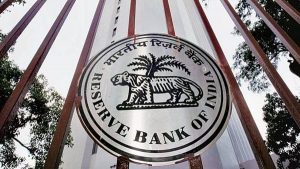
Reserve Bank of India has removed the Central Bank of India from its Prompt Corrective Action Framework (PCAF) after the lender showed improvement in various financial ratios, including minimum regulatory capital and net non-performing assets (NNPAs).
- The Prompt Corrective Action norm is a supervisory tool and is imposed when a bank breaches certain regulatory thresholds on capital to risk weighted assets ratio (CRAR), net NPAs, and return on assets (RoA).
- The RBI imposed PCA norms on the bank in June 2017 due to its high net NPA and negative return of assets (RoA).
- After reviewing the performance of the Central Bank of India, RBI decided to remove the restrictions on the bank.
- The bank has provided a written commitment that it would comply with the norms of minimum regulatory capital, net NPA, and leverage ratio on an ongoing basis.




